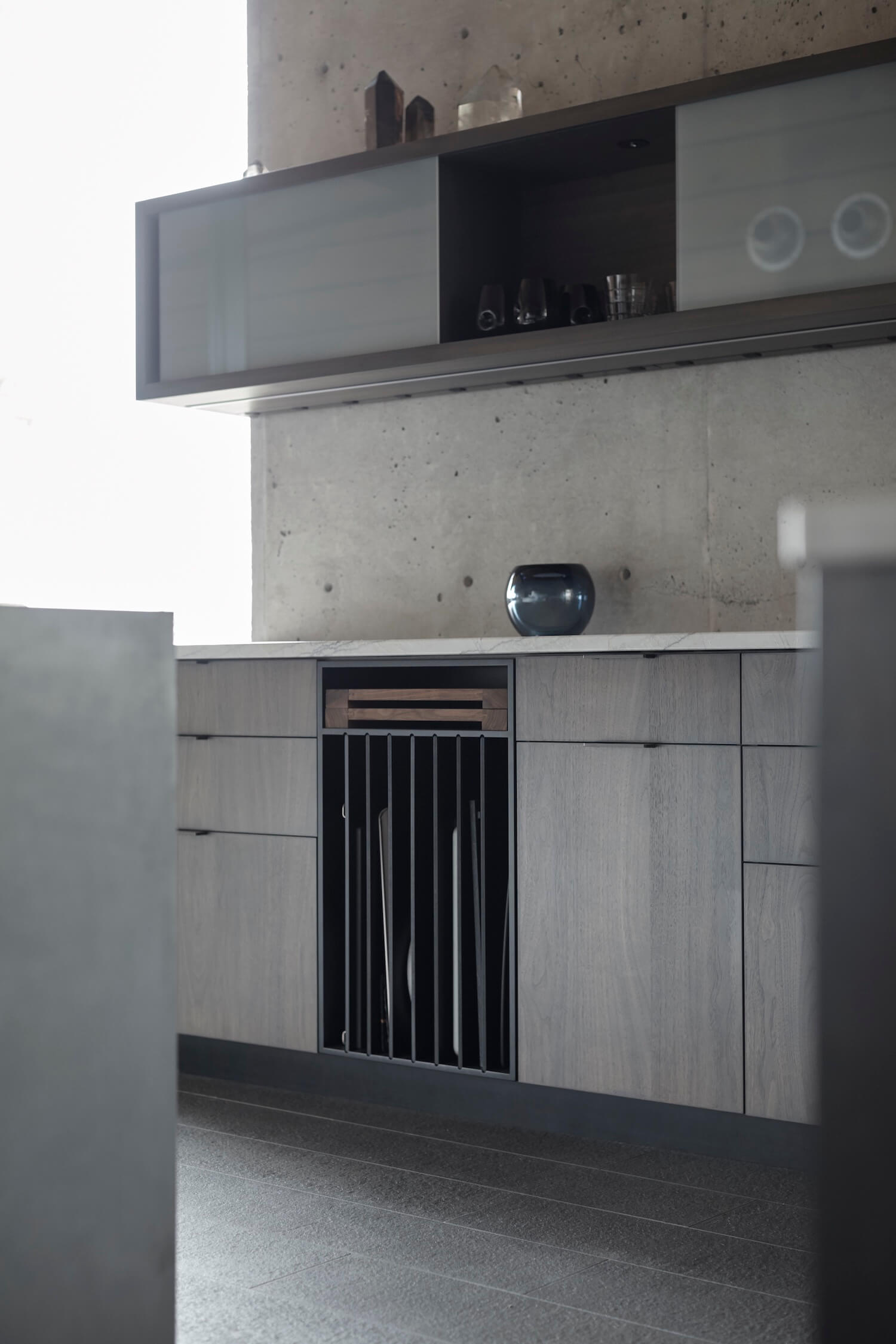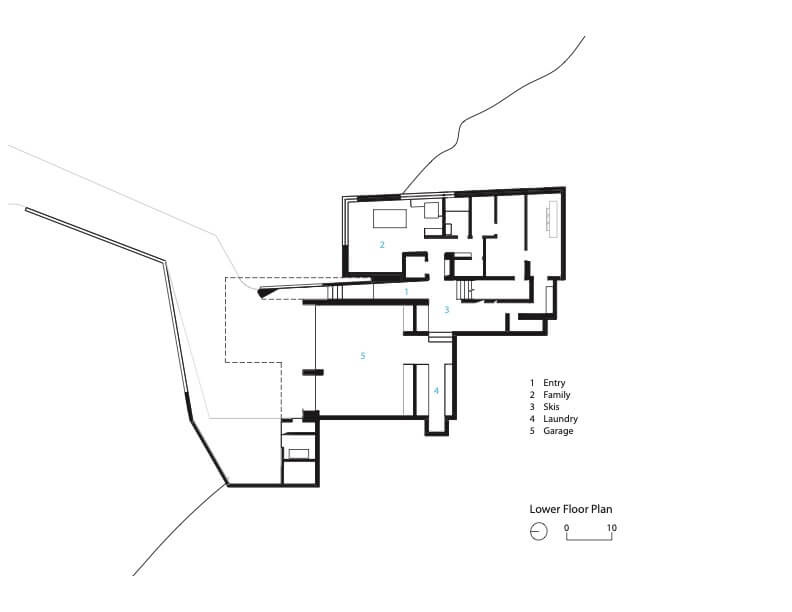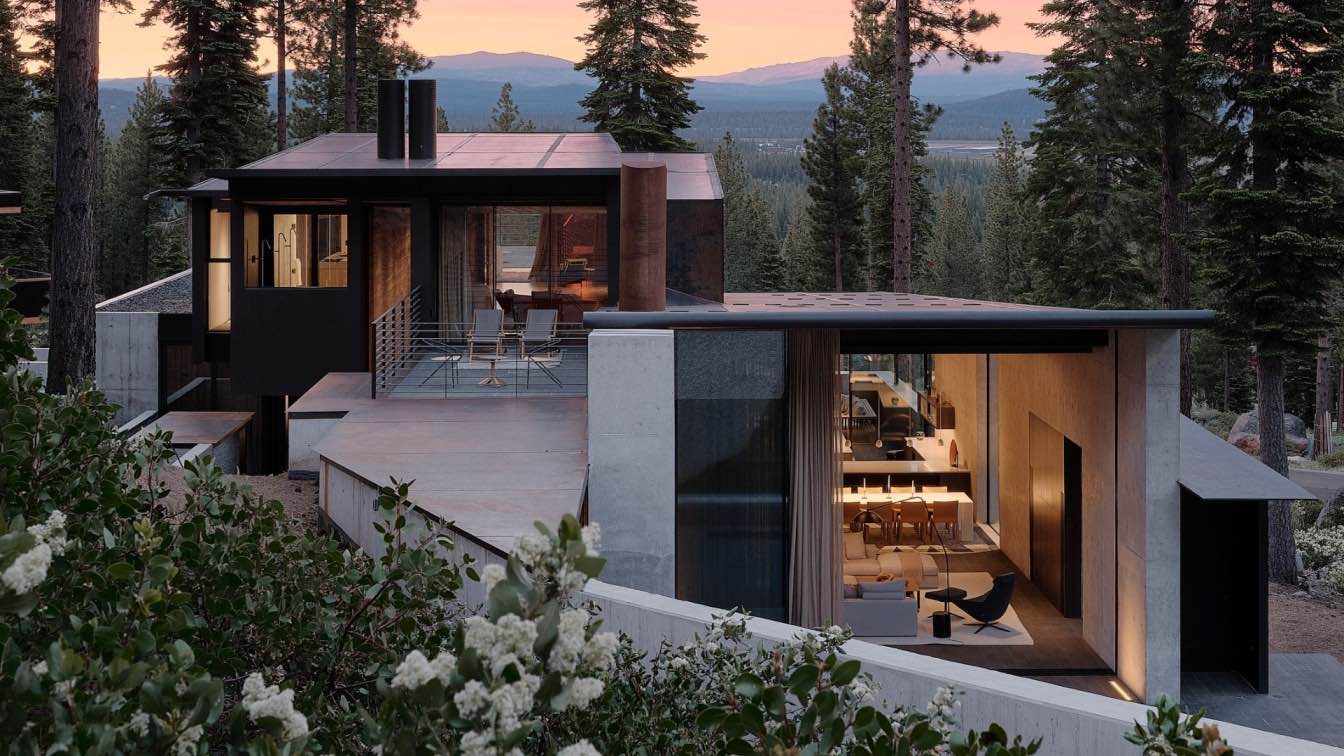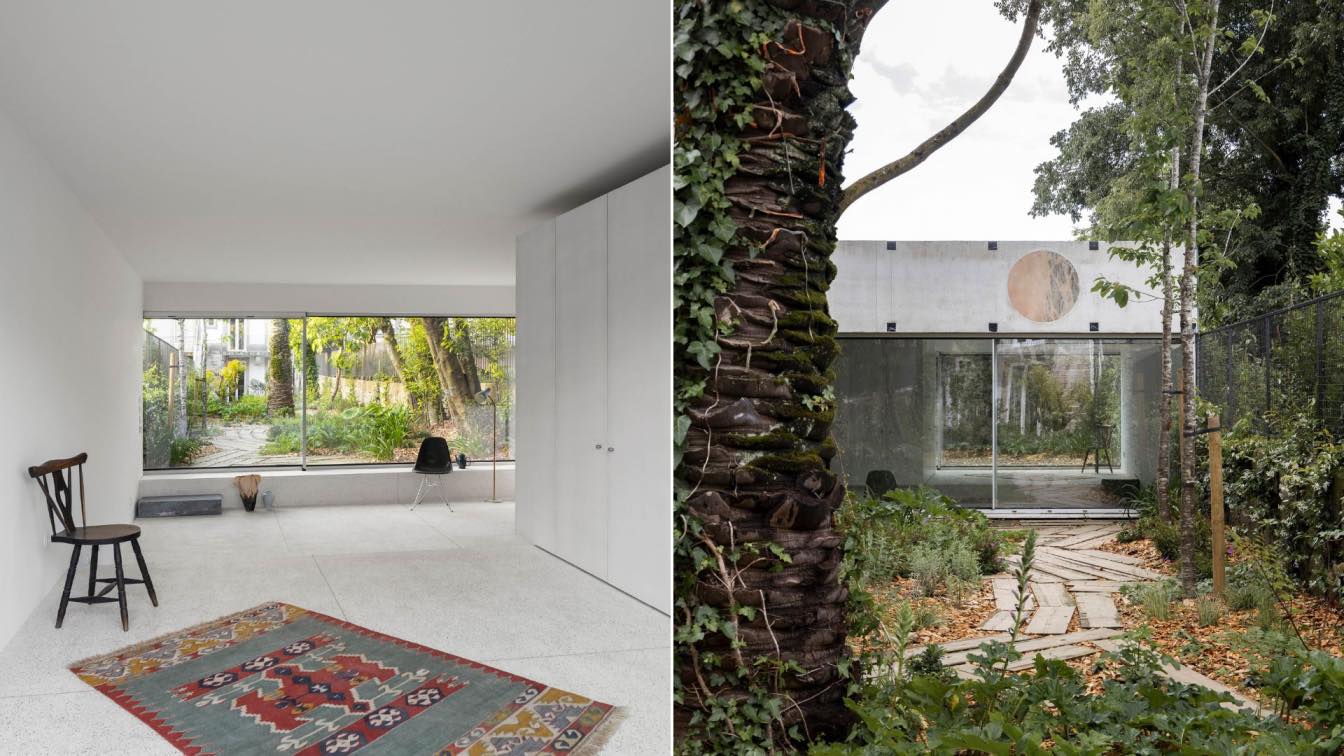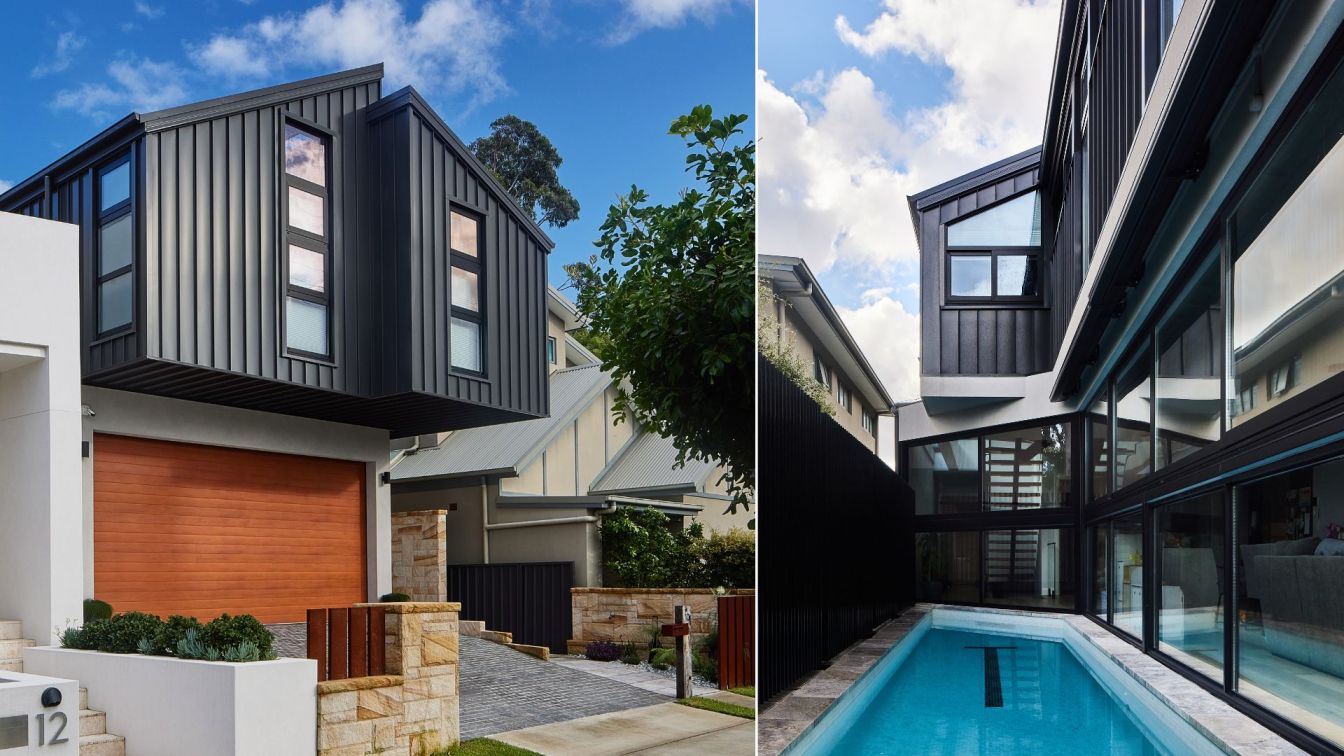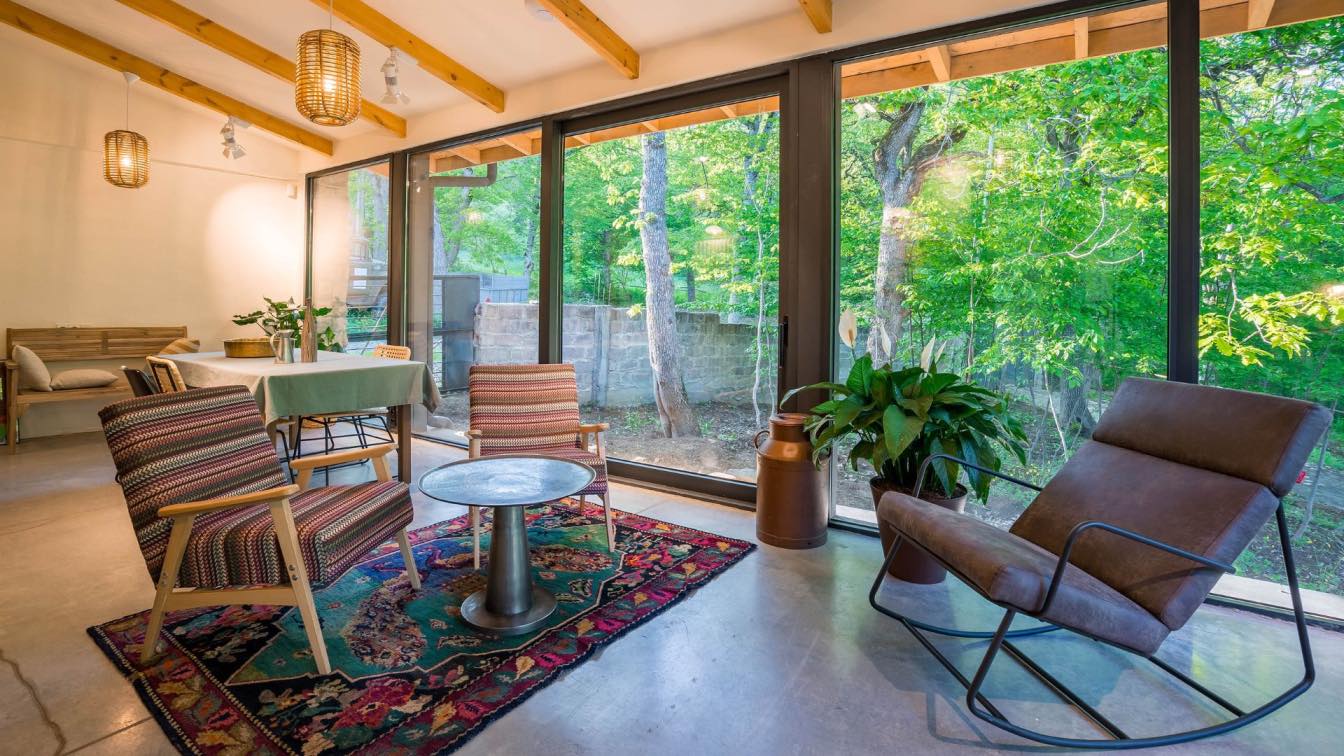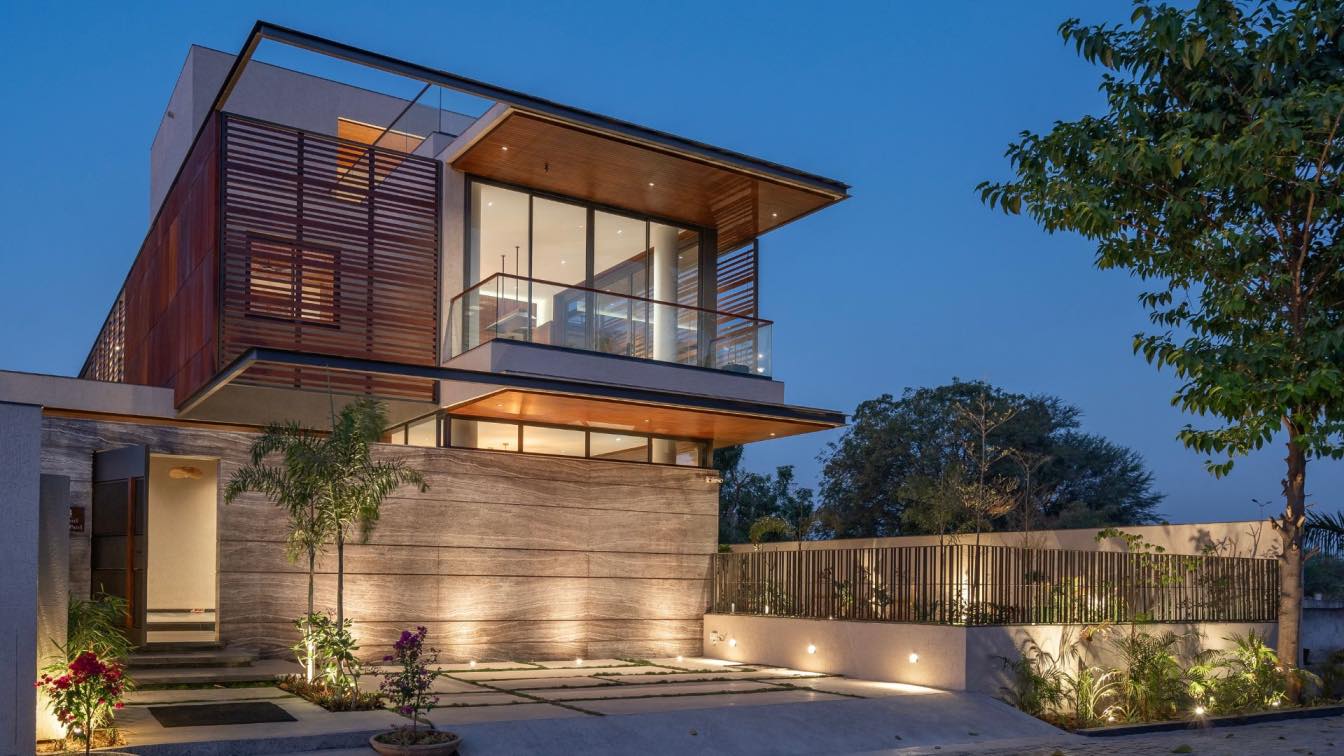Faulkner Architects: The building site had a significant influence on the design for this house. Layered with intense geologic history at the base of a three-million-year-old volcano, the site is a north-facing 20-degree slope with equal parts refuge and prospect at 6,300 feet above mean sea level. Consisting of volcanic sediment from ancient flows and strewn with boulders up to 15 feet in diameter, the site is in an open stand of second-growth Jeffrey pine and white fir trees.
The vertical, plumb lines of the tree trunks, stripped bare from years of deep snow fall, reach for the light. Standing upright at an angle to the slope, they provide a constant reference to the perpendicular horizon in the distance. The harsh winters leave the ground sparse yet partially covered with a mat of pine needles and cones. Large waist-high clusters of manzanita group together and climb the slope in an organic, opportunistic pattern.
 image © Joe Fletcher Photography
image © Joe Fletcher Photography
The singular form of the main space recalls the feeling of a smaller ski cabin with a single space for living and cooking. Bedrooms are concealed behind an acoustically detailed California walnut screen. The earth covered entry level houses the garage, playroom, craft room, and ski locker. A vertical access cuts up through the plan and arrives at grade to the south. Concrete walls extend into the slope and provide skier access.
Insulated 20-inch-thick concrete walls made from local sand and aggregate build a ground form that extends to roofs to enclose space. Full-height openings with structurally glazed sliding doors open the space to the prevailing southwesterly breezes. The concrete walls extend beyond the warm interior environment to create exterior territories at each end. Angled to conform to the building envelope, the extended walls continue into the slope, nearly closing and connecting, but stopping short to leave a gap. The ten-foot-wide opening allows the sloped grade to pour into the building form.
 image © Joe Fletcher Photography
image © Joe Fletcher Photography
Red-orange glass suggests the color of cooling magma, referencing the site's geology and offering a warm approach. The glow extends to the interior, bathing the entry and central stair in light. To the east, a cleared ski access adjoining the site informed the way the plan is built into the slope: a narrow slot within the house's massing mirrors the continuous space of the ski run. This slot connects independently zoned territories with various levels of privacy within the house as a whole.
The material palette is minimal, including concrete, glass, and walnut. Basalt, used for floors throughout, helps to tie the house to the volcanic basalt boulders strewn throughout the surrounding landscape. Enhanced insulation levels (R80 roof) coupled with radiantly heated floors and high efficiency mechanical equipment mitigate energy usage. In response to recent California wildfires danger, the concrete and steel exterior of the built form is resistant to fire and low maintenance. Sustainability design integration here is focused on retention of energy.









































